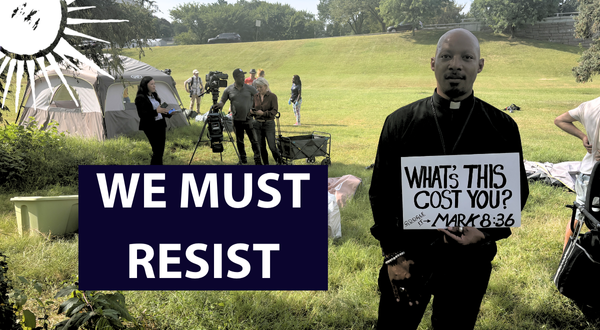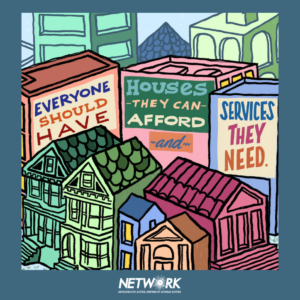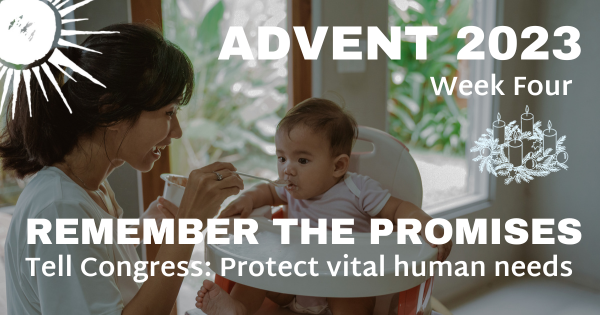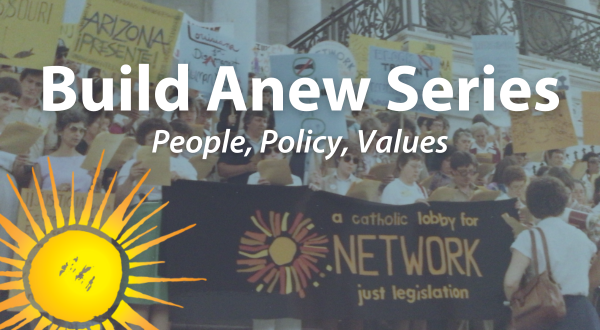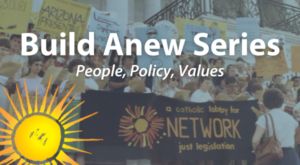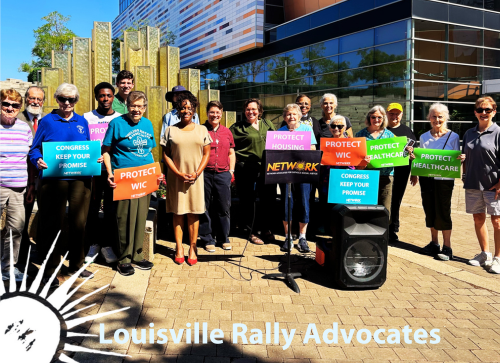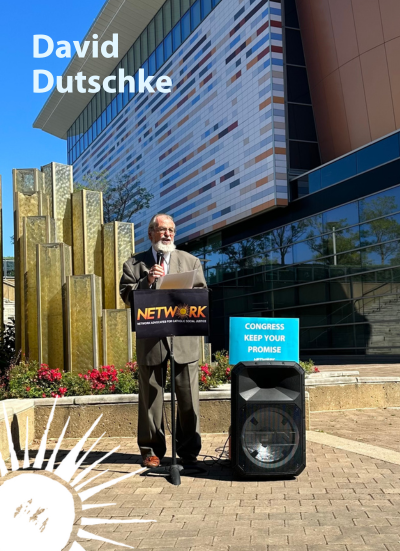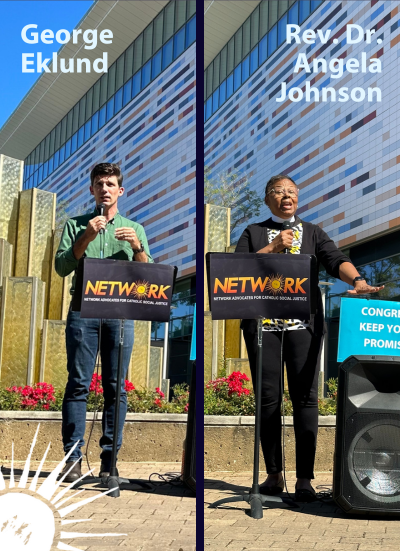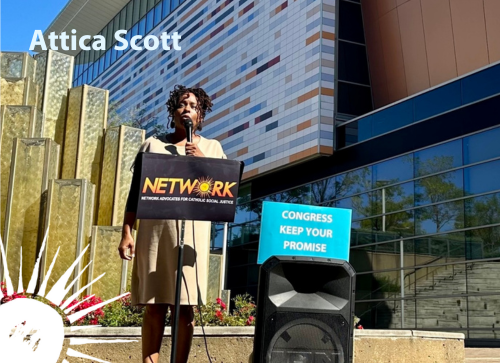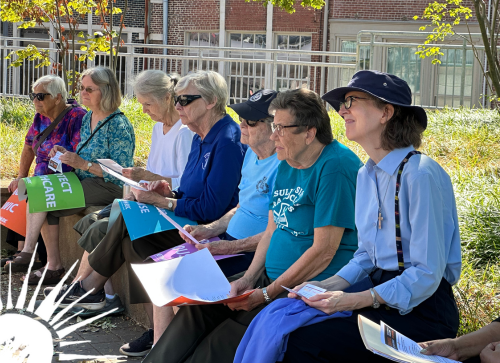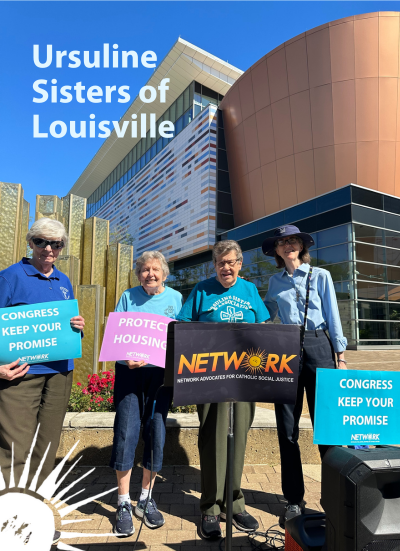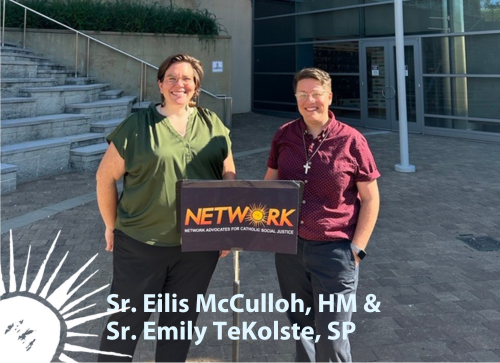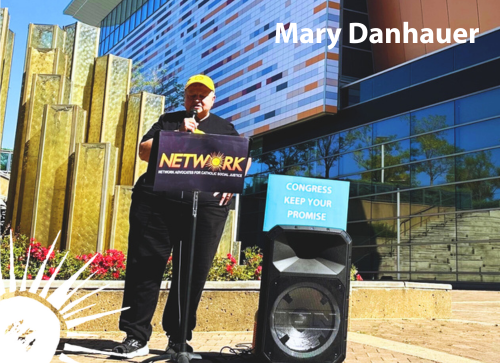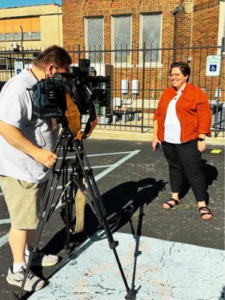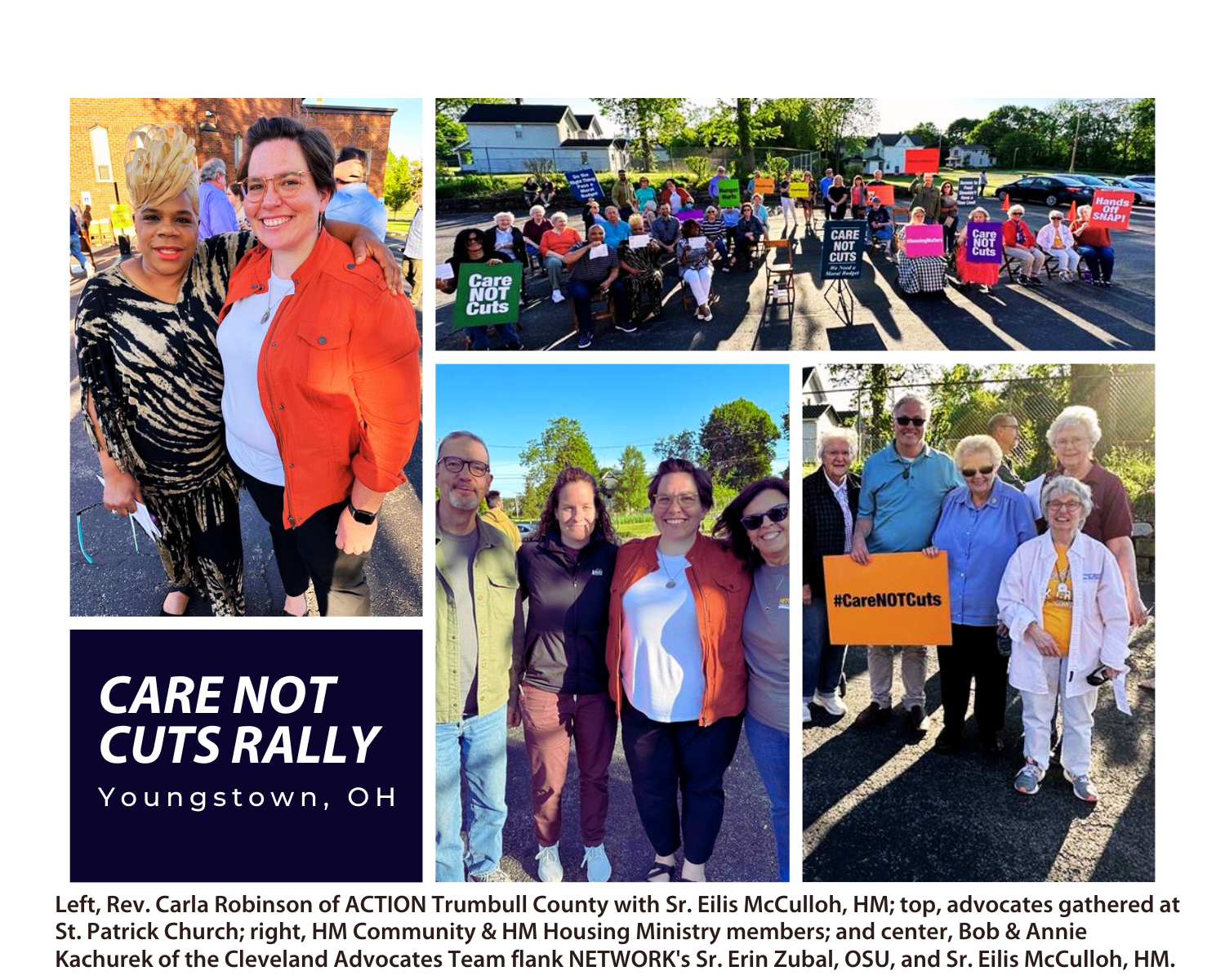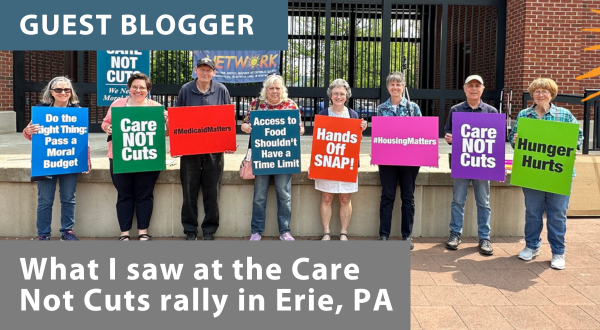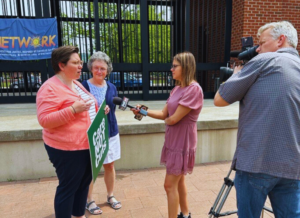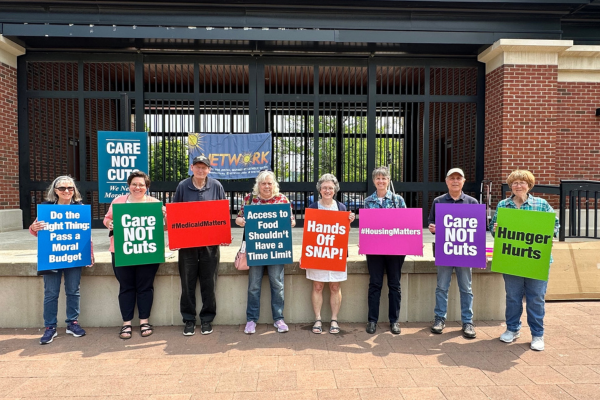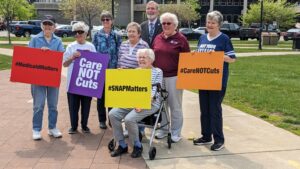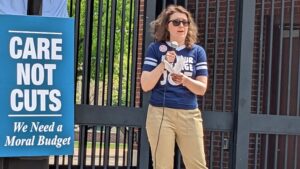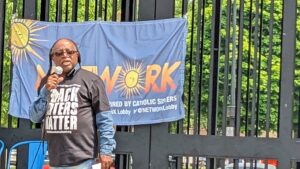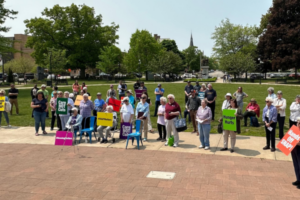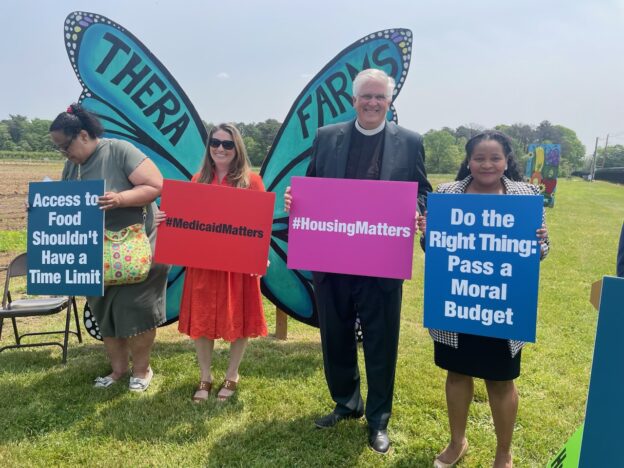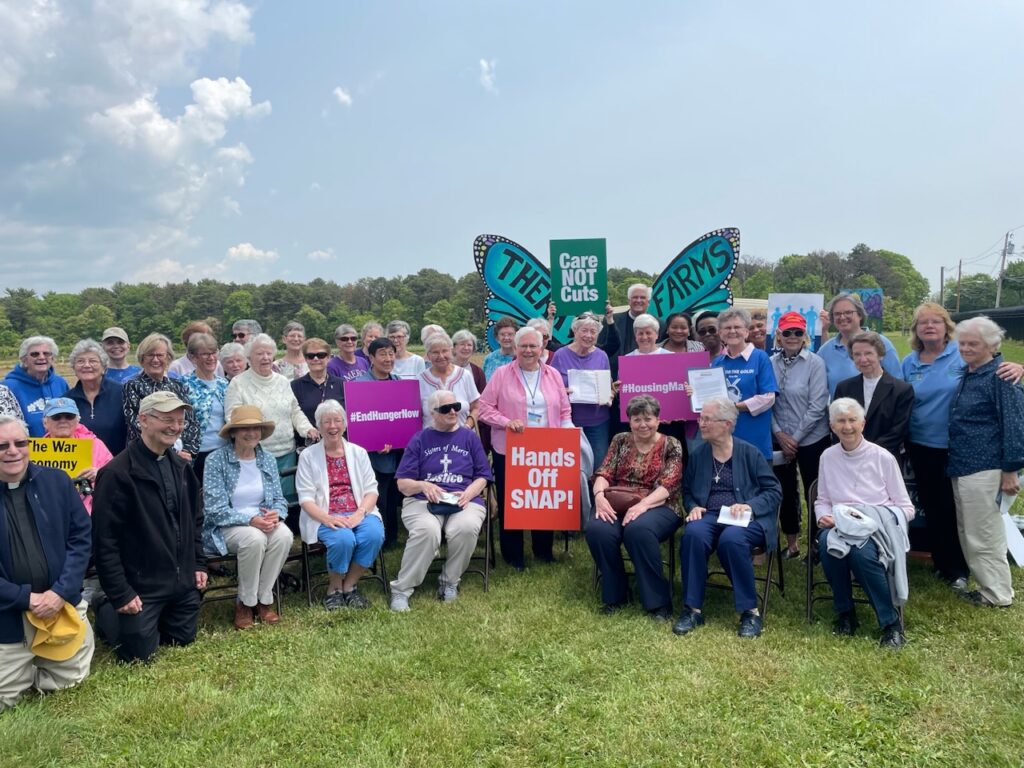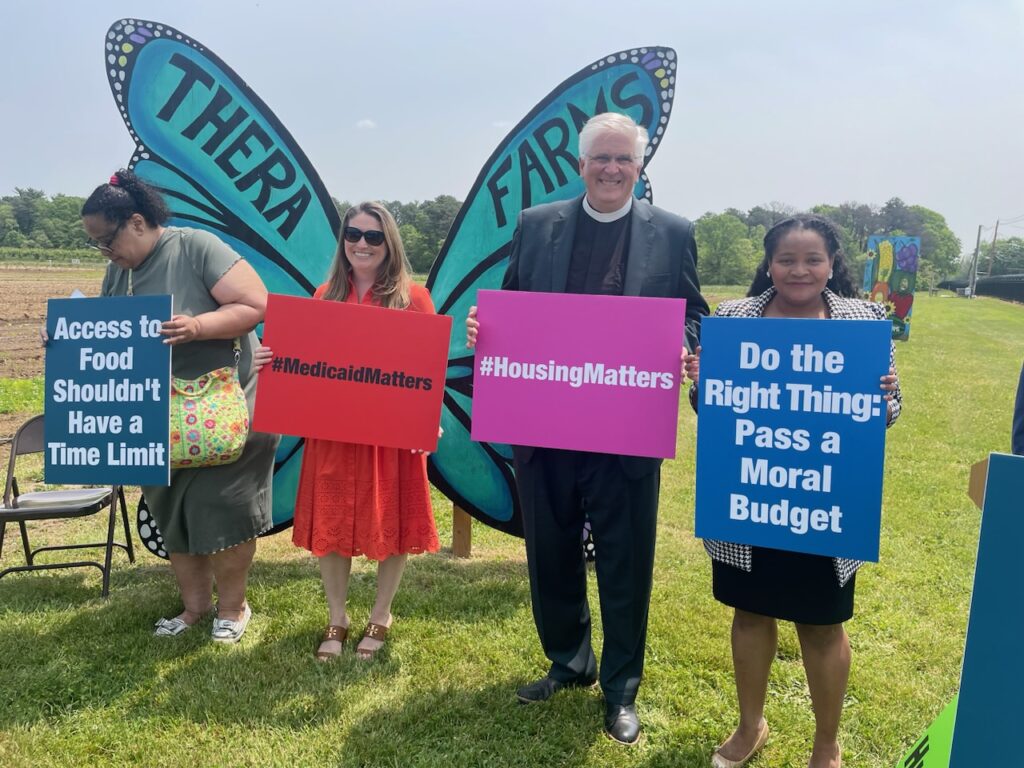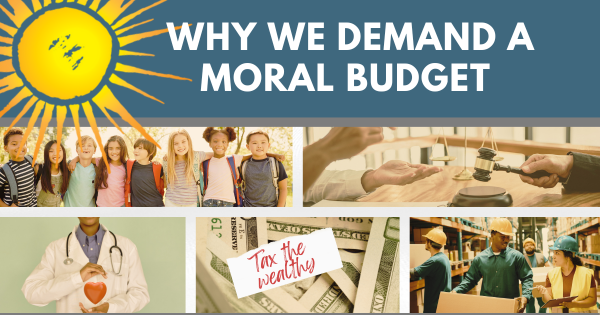Forfeit Not Your Soul
Authoritarian Takeover of DC is a Crisis for Racial Justice and Democracy
Min. Christian S. Watkins
August 29, 2025
As I stood and bore witness to the Braddock’s Rock unhoused encampment behind the U.S. Institute for Peace of all places, I held a sign that read “What’s This Cost You? Mark 8:36,” referencing Jesus’ question: “What does it profit a man to gain the whole world and forfeit his soul?” Concerned clergy and service provider staff convened on August 14 to assisted unhoused neighbors as they relocated. In doing so, we witnessed the crime of Christ being evicted – a violation of our sacred call to care for all people.
In recent weeks, the poorest residents of the city of Washington, D.C.—the heart of U.S. democracy—are being disappeared from our communities: tents torn down and belongings discarded, communities of resilient survival scattered like dust in the wind.
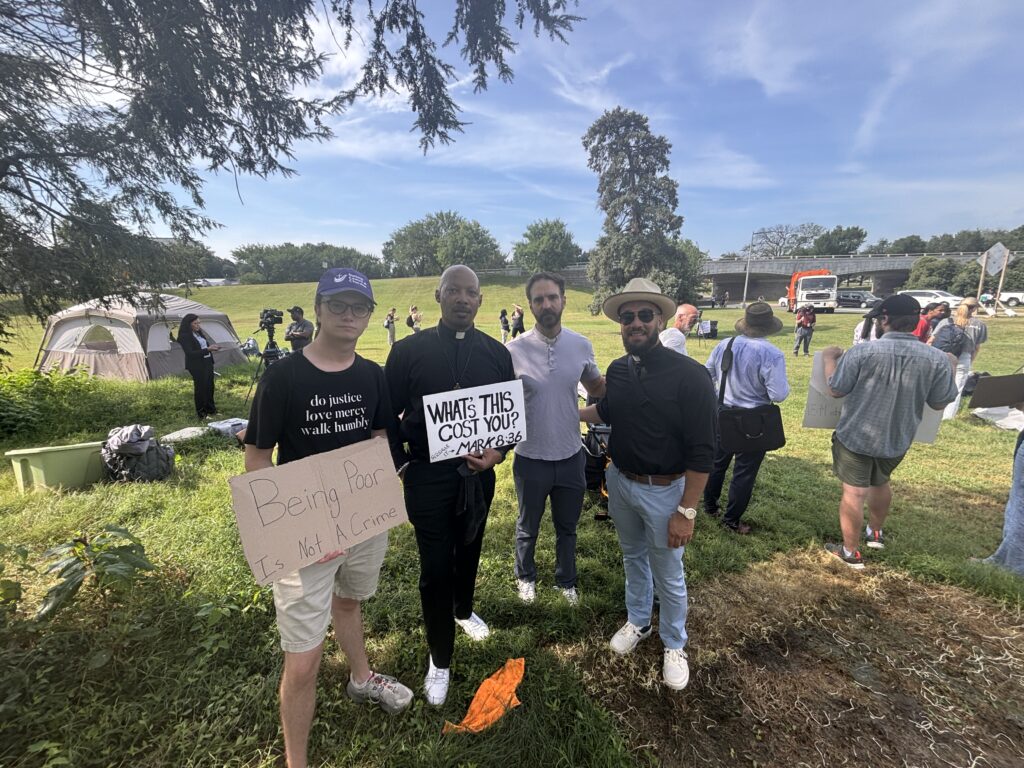
Min. Christian S. Watkins, (second from left) of the NETWORK Government Relations Team joins other clergy and service provider staff as the Braddock’s Rock homeless encampment is cleared on Aug. 14. The move came as part of President Trump’s militarized takeover of Washington, D.C.
And it didn’t stop there. After President Trump issued the Executive Order, collaborating law enforcement agencies intentionally targeted Black and Brown youth navigating the Metro and traversing D.C.’s streets working to deliver food.
The Trump administration wielded emergency powers to unnecessarily federalize the Metropolitan Police Department, deploying National Guard troops and slowly dismantling our sanctuary protections. They initially targeted our unhoused neighbors but soon expanded their scope to hyper-militarize and surveil Black and Brown youth and communities with merciless force. This naked display of power is sinful. God says, “Woe to those who trample on the poor.” (Amos 5:11)
With President Trump naming only cities with Black mayors for future militarized takeover, it is clear that this is all a manufactured assault on Black political power – as well as a rehearsal for broader authoritarianism to envelop our country. This would decimate our collective future built on Constitutional aspirations and promises.
This unneeded hyper-militarization of a peaceful city is designed to send an authoritarian message rather than address any legitimate community needs. Rather than nurture democracy and the systemically disenfranchised, this misguided show of force is a distraction, a calculated attempt to shift the nation’s gaze away from far more dire crises:
- Skyrocketing inflation and the international devaluation of the U.S. dollar, which erodes working families’ purchasing power.
- Administration ineptitude and Department of Government Efficiency (DOGE) failures, which leaves core agencies leaderless and ineffective, costing taxpayers more than the agency ever purported to strive to save.
- Cratering political support at home and abroad, as allies question America’s stability and credibility as a world leader, much less a moral authority.
When leaders are cornered by their own failings, they often reach for the oldest tool in the autocrat’s playbook: stoke fear, unleash the military, and change the subject. This takeover is not happening in a vacuum. It is fueled by a Christian nationalist ideology that seeks to merge political power with a narrow, exclusionary version of Christianity.
True Christian witness calls us to loving service grounded in humility and justice lending to liberation, not to bless state power when it tramples our neighbors, the people Christ admonished us to protect, serve, and defend and the integrity of the Church. If we do not name and resist it, we risk turning the cross of Christ into a banner for empire.
As people of faith and moral courage, we MUST resist.
Catholics and faithful allies committed to the common good know you cannot speak of justice when local police accountability is replaced by federal chains of command that answer political power, not community needs. You cannot claim security while criminalizing poverty and erasing the humanity of the unhoused.
True justice cannot be militaristic or top down. It must be rooted in restorative, community-based care. The federalized, militarized response fractures trust and undermines local accountability. Faithful communities must speak truth to power.







